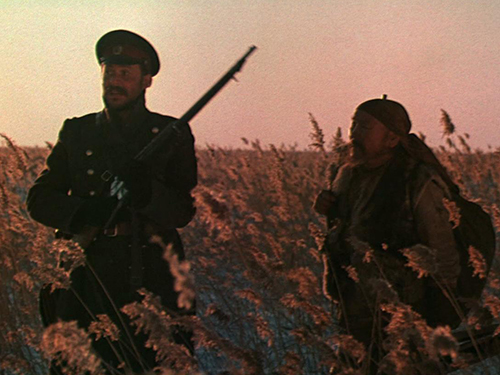
“When I begin to consider a film project, I always have in mind a number of ideas that feel as if they would be the sort of thing I’d like to film. From among these one will suddenly germinate and begin to sprout; this will be the one I grasp and develop. I have never taken on a project offered to me by a producer or a production company. My films emerge from my own desire to say a particular thing at a particular time. The root of any film project for me is this inner need to express something. What nurtures this root and makes it grow into a tree is the script. What makes the tree bear flowers and fruit is the directing.”
Akira Kurosawa 1
“[...] in Japan the industry has begun imitating television, producing films that are like television movies. Few people are eccentric enough to enjoy paying a high ticket price to go to see a television movie in a movie theater. I have digressed again, but it is difficult for a film director who is like a salmon. When the river he was born and raised in becomes polluted, he can’t climb back upstream to lay his eggs – he has trouble making his films. He ends up by complaining. One such salmon, seeing no other way, made a long journey to climb a Soviet river and give birth to some caviar. This is how my 1975 film Dersu Uzala came about. Nor do I think this is such a bad thing. But the most natural thing for a Japanese salmon to do is to lay its eggs in a Japanese river.”
Akira Kurosawa2
“Recounting three expeditions to survey the Siberian wilderness undertaken by Arsenyev in the early years of the twentieth century, Dersu Uzala takes its name from a hunter Arsenyev meets and becomes close to, a figure who represents a kind of psychological turning point for Kurosawa. Dersu is like his samurai-supermen in many ways, seeing what others fail to see, knowing what to do in the face of a crisis and going about his business with earnest, humble objectivity. At the same time, and over the course of the story, we see age starting to take its toll on Dersu, who starts misreading the intentions of fellow travellers, suffering from poor eyesight (as Kurosawa himself did) and struggling to adapt to the ways in which the world is changing – ways that are bewildering and, eventually, disastrous for him. If we are looking for Kurosawa in the characters of his films, then Dersu builds upon the character of Tamba from Dodes’ka-den – the man who was aware of the faults of the world but unable to truly make a mark. He is a figure on whom the world acts negatively in spite of all he has learned about how to protect himself.”
Peter Wild3

